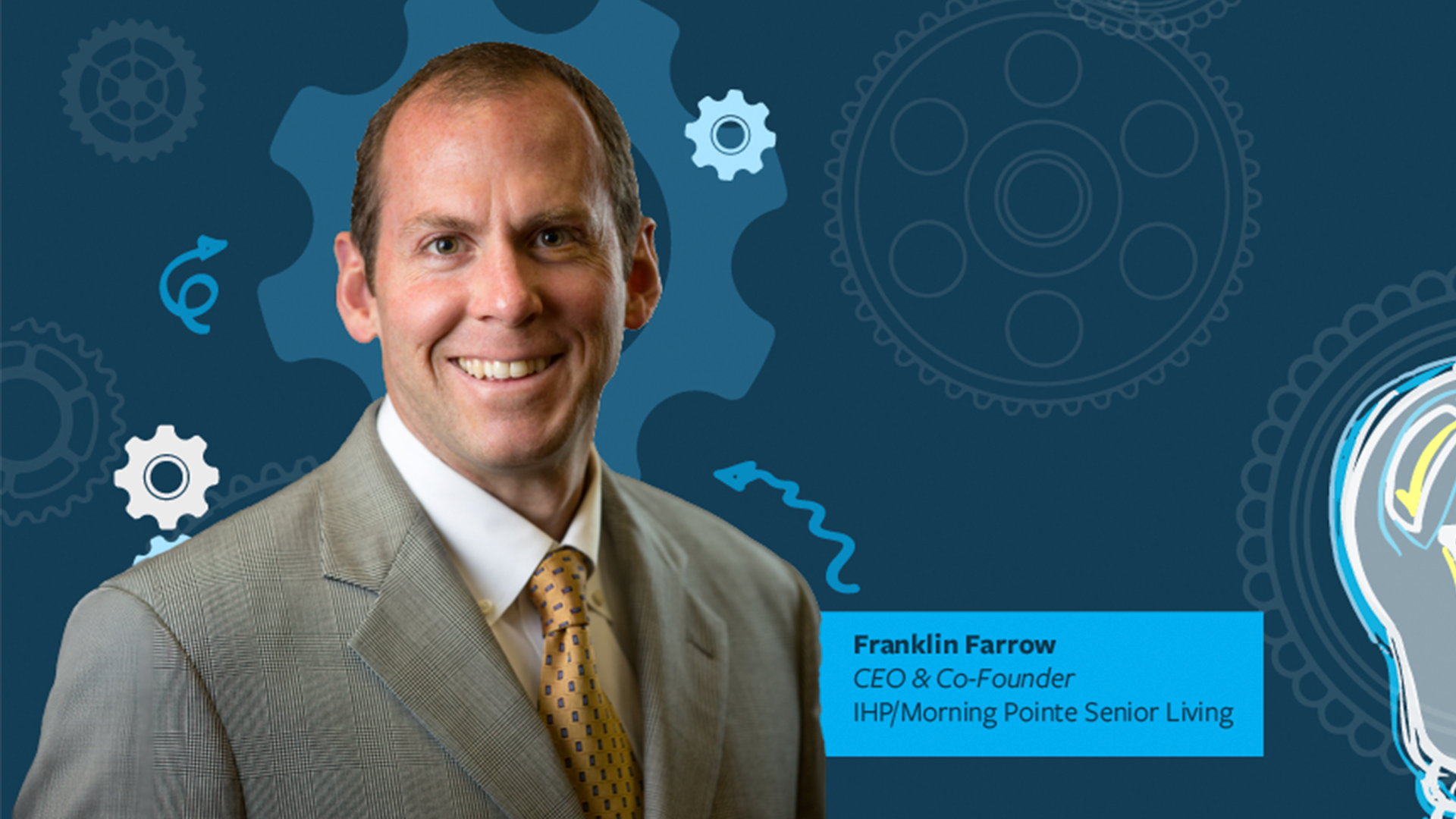Share This
Related Posts
Tags
Celebrating Franklin Farrow
By Natalie Mahn on Jul 23, 2024 in Senior Living
It’s time to introduce the next batch of 2024 Changemakers — senior living visionaries who are shaping the industry as we know it. Senior Housing News (SHN) has conducted thorough interviews with each of this year’s honorees, including the honoree we’re spotlighting today: Franklin Farrow.

As the CEO and co-founder of Morning Pointe Senior Living, a Yardi senior living client that’s been in the industry since 1996, Farrow knows all about driving impactful change. In his conversation with SHN, Farrow shares how the company’s start still impacts how it operates today — as well as how he envisions Morning Pointe evolving in the future.
Hear from Changemaker Franklin Farrow
SHN: How have you changed as a leader since starting in this industry?
Farrow: Our company was co-founded by myself and Greg Vital, who’s the president, 27 years ago in 1996. We each brought attributes and experiences, time, and talent to the table. He’s 15 years older, and so he had a different network of people than I did at the time. We blended our talents and experiences to launch the company. At that time, I was more capable of tasks and completion of thoughts and ideas. He was the more entrepreneurial leader having been in the business world in advance of me.
To answer the question, I’ve transitioned from being more of executing the completion of the ideas that were generated to more of generating ideas and having others follow through on them. It’s been a metamorphosis of me, and I think this is true for any young professional who grows through any industry, that they are advanced because of their capacity to complete projects and they start leading others to help them complete projects, and then, ultimately, they start thinking and leading concepts and philosophies for others to complete and finalize and implement.
I’m playing more of a top senior manager, owner role, setting larger vision, setting larger goals, and then, because I was involved in tasks and details, I’m able to articulate to them what I think the scope and capacity of the project is and make sure they have the resources, but don’t have to physically roll up my sleeves as much, although I enjoy that part. Also I have to caution myself that my time is more valuable being visionary and thought leading than task completion.
SHN: If you could turn the lens back at yourself, what sort of changemaker do you think you are? What area do you think you’re a changemaker in?
Farrow: I would say if you were to interview my senior management team who hears me pontificate and try to set direction, I think they would tell you that I do try to think through the mind, eyes, and feelings of those who are sitting in various seats, the seat of a regional operator, the seat of a senior manager, or the seat of a business office manager, or even a resident care aide.
I’m constantly trying to shape and form the way we conduct our business, and I often use the word psychology. I’m not a psychologist.
However, I’m constantly thinking, “What motivates a regional vice president or what motivates a nurse on the floor? What environment are they looking to operate in? How do they want to be treated?” I’m also trying to weave in principles of standards of conduct, ethics, and standards of the golden rule of doing to others. Not only are we trying to operate from the viewpoint of those in the seat or hot seat of those various capacities and roles, I’m also trying to say, “Let’s just do things because we want to be decent, honest, and upright standing people too, not just the pure business robotics of things.”
I host a standing Tuesday morning session, where anyone in the company who can get away for 15 minutes can come and listen to an inspirational devotional thought from the owner and CEO. I know of people who joined our company because of our ethics and values and culture around the fact that we have a missional alignment.
SHN: As you look across the industry, what do you think is the single greatest driver of change right now?
Farrow: Trying to get into the minds of the baby boomers, which is difficult. They’ve set trends starting from the ’50s about how they want fashion, food, fun, purchasing, retirement, and end of life services. We don’t quite know what yet is coming. We’ve been building buildings, providing care level models, pricing, food selections, and activity selections all around the last 30 years or so since the industry started to evolve.
I think there’s going to be a significant shift over the next 10 years as the real baby boomers start to come in. I think we’re still too early… The key is anticipating what the baby boomers will want when they arrive at our facilities in about 10 years.
It’s a little bit daunting to try to anticipate and think about how much they could end up changing for us. They’re going to demand value. Guessing what they want is difficult. We may need to quickly pivot to meet their expectations.
Get more insights from Changemaker Franklin Farrow
Read Franklin Farrow’s entire interview for more stories, advice and insights. As sponsor of the series for the sixth consecutive year, we congratulate all the Changemakers honored so far — and the honorees to come.
Check back soon for the interviews we have in store for the remainder of the series!
